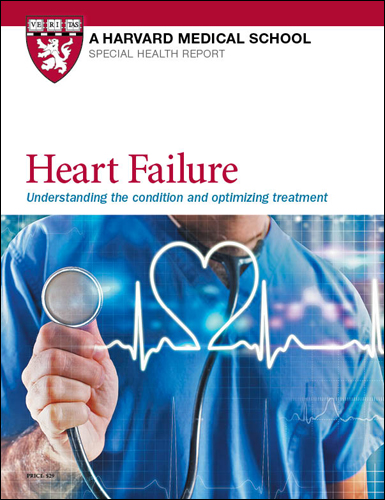Heart Failure: Understanding the condition and optimizing treatment

How to manage heart failure effectively—and successfully
By age 60, your heart has beaten over two billion times. Day after day. Minute after minute. Is it any wonder that, for millions of adults, the heart’s pumping power gradually begins to decline?
This decline is what doctors call “heart failure.” It doesn't mean the heart is suddenly shutting down. Quite the opposite, it is working harder. Heart failure means that the heart's ability to deliver enough oxygenated blood to all the body's organs and tissues is compromised. Undiagnosed and unchecked, this can lead to debilitating or even fatal damage.
The good news is that heart failure is manageable. You can ease your heart’s workload—and your worry. In Heart Failure: Understanding the condition and optimizing treatment you’ll learn the mechanics of the heart, the symptoms and warning signs of heart failure, and, most of all, the keys to an effective treatment plan.
The report will brief you on the expanded array of diagnostic tools that let doctors accurately assess a heart’s condition and pinpoint the contributing causes of heart failure.
You’ll learn how new classes of medication continue to improve the prognosis for men and women with heart failure. The report compares the efficacy and side effects of more than 50 frontline drugs including beta blockers, diuretics, ACE inhibitors, and more.
Equally important, the report will help you understand and invest in the steps you need to take to keep heart failure in check. You’ll get guidance for monitoring symptoms, for sticking to your doctor's strategy, and for making heart-smart lifestyle changes.
